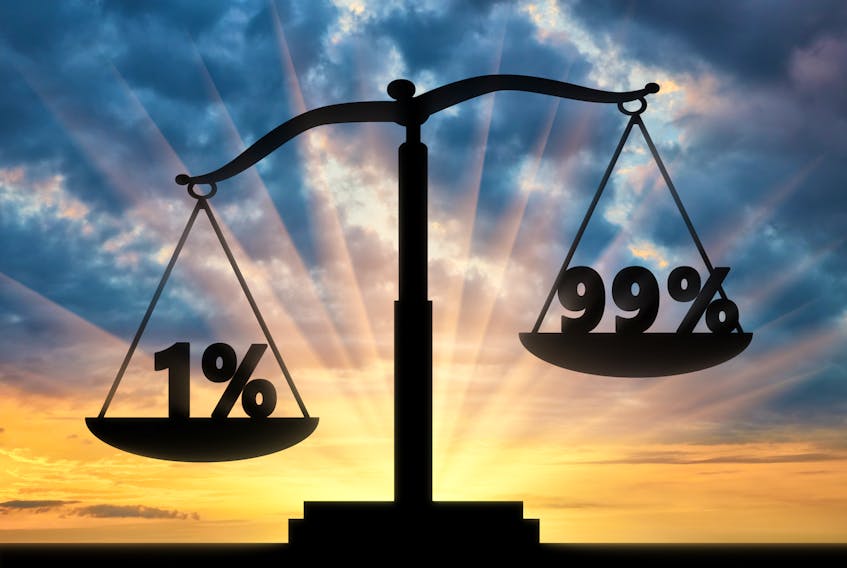
Lars Osberg was analyzing, talking about and working on economic inequality long before it was cool, long before anyone thought it was a problem.
The Dalhousie University economics professor has made the study of inequality his life’s work — and it has been extensive. His first book, “Inequality in Canada,” was released in 1981, almost four decades ago. His latest is already the talk among the progressive economics circuit.
Long before French economist Thomas Piketty blew the lid off surging global inequality and its causes with his best-selling tome, “Capital,” Osberg was plugging away at it from his Halifax university office.
Related story:
Russell Wangersky: The obscenely wealthy vs. the obscenely poor
Thoughtful, brilliant, soft-spoken and genuinely concerned about the impact of growing inequality on democracy, Canadian society and Canadians, Osberg’s new book examines decades of income data and issues a stern warning about the consequences of inequality: worrisome instability.
“The Age of Increasing Inequality: The Astonishing Rise Of Canada’s 1%” doesn’t merely detail years of data about how inequality has grown in Canada, but argues why ever-increasing equality is so harmful to our democracy.
Osberg has been saying that for some time. It is a predictable outcome. Those with money get more say and the more money they get, the more say they get. The rich also have no trouble exercising their unlimited access and influence over the political class and political decisions.
Osberg argues that Canada is at risk of instability because of rising wealth disparity. There is little doubt this is also at the root of the rise of populist politics across much of the world, including Canada.
The bottom half of Canada’s population is economically stuck. While the top half have improved somewhat over the past several decades, they find themselves further and further behind those at the very top, the 1 per cent.
That’s because the 1 per cent are taking an ever-growing share of income and wealth. This reinforces a sense of unfairness and insecurity as those at the top are so far ahead of everyone else.
In a recent news report, Osberg said “economic inequality leads to being susceptible to just wanting a change, any change.”
How else could someone like Doug Ford rise to the seat of premier of Canada’s largest province?
“The trend for the future is that if we have this continual pulling away of the elite, it will create social strains that are very detrimental to the ideas of democracy and personal freedom that I think are important in non-economic ways to our well-being,” said Osberg.
The book notes that: “For 35 years, the country has become vastly wealthier, but most people have not. For the top 1 per cent, and even more for the top 0.1 per cent, the last 35 years have been a bonanza. Canadians know very well that there’s a huge problem. It’s expressed in resistance to tax increases, concerns over unaffordable housing, demands for higher minimum wages, and pressure for action on the lack of good full time jobs for new graduates.”
Osberg tackles unfair trade deals, the gradual decline of unions in the private sector, and the lack of any cap on CEO pay as some of the problems leading to inequality.
In addition to recommendations that would fix some of these issues, Osberg has a few other ideas about how Canada can deal with disparity and instability. He recommends reforms at the Bank of Canada (this is written by an economist after all), a progressive tax system, and universal basic income as a start.
Piketty recommended among other things a global tax on wealth in order to stop the soaring accumulation of wealth by a tiny number of the planet’s citizens.
All of these would take bold political will, unlike we have seen in decades, if ever.
Consider for example, last year when the federal Liberals attempted some minor tax changes on the wealthy. The wealthy pushed back hard and the government crumbled.
Osberg stresses that increasing inequality is bad for our nation and our world, and that the unfairness of inequality is “toxic” and “destabilizing.”
But nothing, he has been known to say, is inevitable.
We should all hope he is right.
Lana Payne is the Atlantic director for Unifor. She can be reached by email at [email protected]. Twitter: @lanampayne









